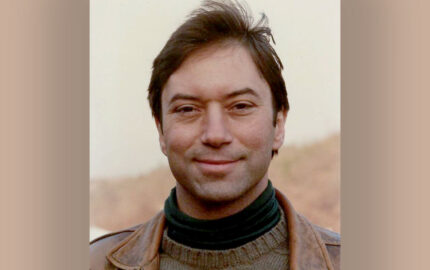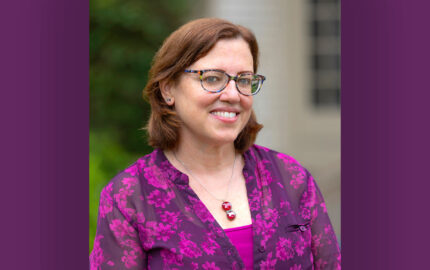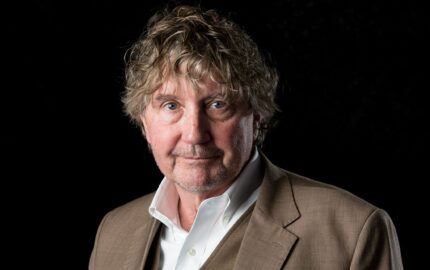CAMBRIDGE, Mass. (May 24, 2004) — The Nieman Foundation for Journalism at Harvard University launches a new Web site today to encourage watchdog reporting by drawing on authorities in various fields to suggest questions for the press to ask.
The Web site, www.NiemanWatchdog.org, offers reporters and editors the expertise that resides at Harvard and other centers of learning and information, including the professions, activist groups, politics and government.
Barry Sussman, editor of the new Web site, said, "Independent experts are often eager to help journalists identify what is important. They'll provide questions, show why their questions are important, and serve as sources for reporters who choose to follow up and do stories."
"Probing questions are essential to informed reporting," said Bob Giles, curator of the Nieman Foundation. "Those with authoritative knowledge of issues in the news often can identify angles the press has missed, and can suggest questions that will give the public a fuller understanding."
On its first day, NiemanWatchdog.org offers questions for stories on the military, the environment, the economy, taxes, terrorism, education, prisons and other aspects of the criminal justice system, voting disenfranchisement and problems with voting machines, health care disparities, opinion polls and other subjects. In addition, it has commentary and examples of showcase (best practices) watchdog reporting.
The Web site is targeted at concerned citizens as well as at print, broadcast, and online reporters and editors, and encourages comments and contributions from users. It is an outgrowth of the Nieman Foundation's Watchdog Project, created in 1996 with funds given by Murrey Marder, a retired diplomatic correspondent of The Washington Post and a Nieman Fellow in 1950.
It is Marder's vision that the Web site seeks to promote: "Watchdog journalism is by no means just occasional selective, hard-hitting investigative reporting," he said. "It starts with a state of mind, accepting responsibility as a surrogate for the public, asking penetrating questions at every level, from the town council to the state house to the White House, in corporate offices, in union halls and in professional offices and all points in-between." It operates, Marder said, "as an instrument of democracy."
Sussman was a Washington Post editor for 22 years. As D.C. editor he directed the Post's coverage of the Watergate scandal. Later he was a public opinion analyst for the newspaper, serving as co-founder of the Washington Post/ABC News Poll, writing news and analysis from the polls and also a column on public opinion for the Post's National Weekly edition.
The deputy editor of NiemanWatchdog.org is Dan Froomkin, a veteran reporter and editor. From 2000 to 2003, Froomkin was second in command of editorial operations at washingtonpost.com, and currently he writes washingtonpost.com's "White House Briefing" column. He has been a reporter at the Winston-Salem Journal, the Miami Herald, and the Orange County Register. He has taught journalism at The American University Graduate School of Communication and The Poynter Institute.
In addition to the Watchdog Project, the Nieman Foundation has since 1938 been the home of the Nieman Fellows, the oldest midcareer fellowship for journalists in the world. The fellowships are awarded to working journalists of accomplishment and promise for an academic year of study in any part of the university. More than 1,000 from the United States and 76 other nations have studied at Harvard as Nieman Fellows. The foundation also publishes the quarterly magazine Nieman Reports and is the home of the Nieman Program on Narrative Journalism.
The Web site, www.NiemanWatchdog.org, offers reporters and editors the expertise that resides at Harvard and other centers of learning and information, including the professions, activist groups, politics and government.
Barry Sussman, editor of the new Web site, said, "Independent experts are often eager to help journalists identify what is important. They'll provide questions, show why their questions are important, and serve as sources for reporters who choose to follow up and do stories."
"Probing questions are essential to informed reporting," said Bob Giles, curator of the Nieman Foundation. "Those with authoritative knowledge of issues in the news often can identify angles the press has missed, and can suggest questions that will give the public a fuller understanding."
On its first day, NiemanWatchdog.org offers questions for stories on the military, the environment, the economy, taxes, terrorism, education, prisons and other aspects of the criminal justice system, voting disenfranchisement and problems with voting machines, health care disparities, opinion polls and other subjects. In addition, it has commentary and examples of showcase (best practices) watchdog reporting.
The Web site is targeted at concerned citizens as well as at print, broadcast, and online reporters and editors, and encourages comments and contributions from users. It is an outgrowth of the Nieman Foundation's Watchdog Project, created in 1996 with funds given by Murrey Marder, a retired diplomatic correspondent of The Washington Post and a Nieman Fellow in 1950.
It is Marder's vision that the Web site seeks to promote: "Watchdog journalism is by no means just occasional selective, hard-hitting investigative reporting," he said. "It starts with a state of mind, accepting responsibility as a surrogate for the public, asking penetrating questions at every level, from the town council to the state house to the White House, in corporate offices, in union halls and in professional offices and all points in-between." It operates, Marder said, "as an instrument of democracy."
Sussman was a Washington Post editor for 22 years. As D.C. editor he directed the Post's coverage of the Watergate scandal. Later he was a public opinion analyst for the newspaper, serving as co-founder of the Washington Post/ABC News Poll, writing news and analysis from the polls and also a column on public opinion for the Post's National Weekly edition.
The deputy editor of NiemanWatchdog.org is Dan Froomkin, a veteran reporter and editor. From 2000 to 2003, Froomkin was second in command of editorial operations at washingtonpost.com, and currently he writes washingtonpost.com's "White House Briefing" column. He has been a reporter at the Winston-Salem Journal, the Miami Herald, and the Orange County Register. He has taught journalism at The American University Graduate School of Communication and The Poynter Institute.
In addition to the Watchdog Project, the Nieman Foundation has since 1938 been the home of the Nieman Fellows, the oldest midcareer fellowship for journalists in the world. The fellowships are awarded to working journalists of accomplishment and promise for an academic year of study in any part of the university. More than 1,000 from the United States and 76 other nations have studied at Harvard as Nieman Fellows. The foundation also publishes the quarterly magazine Nieman Reports and is the home of the Nieman Program on Narrative Journalism.


